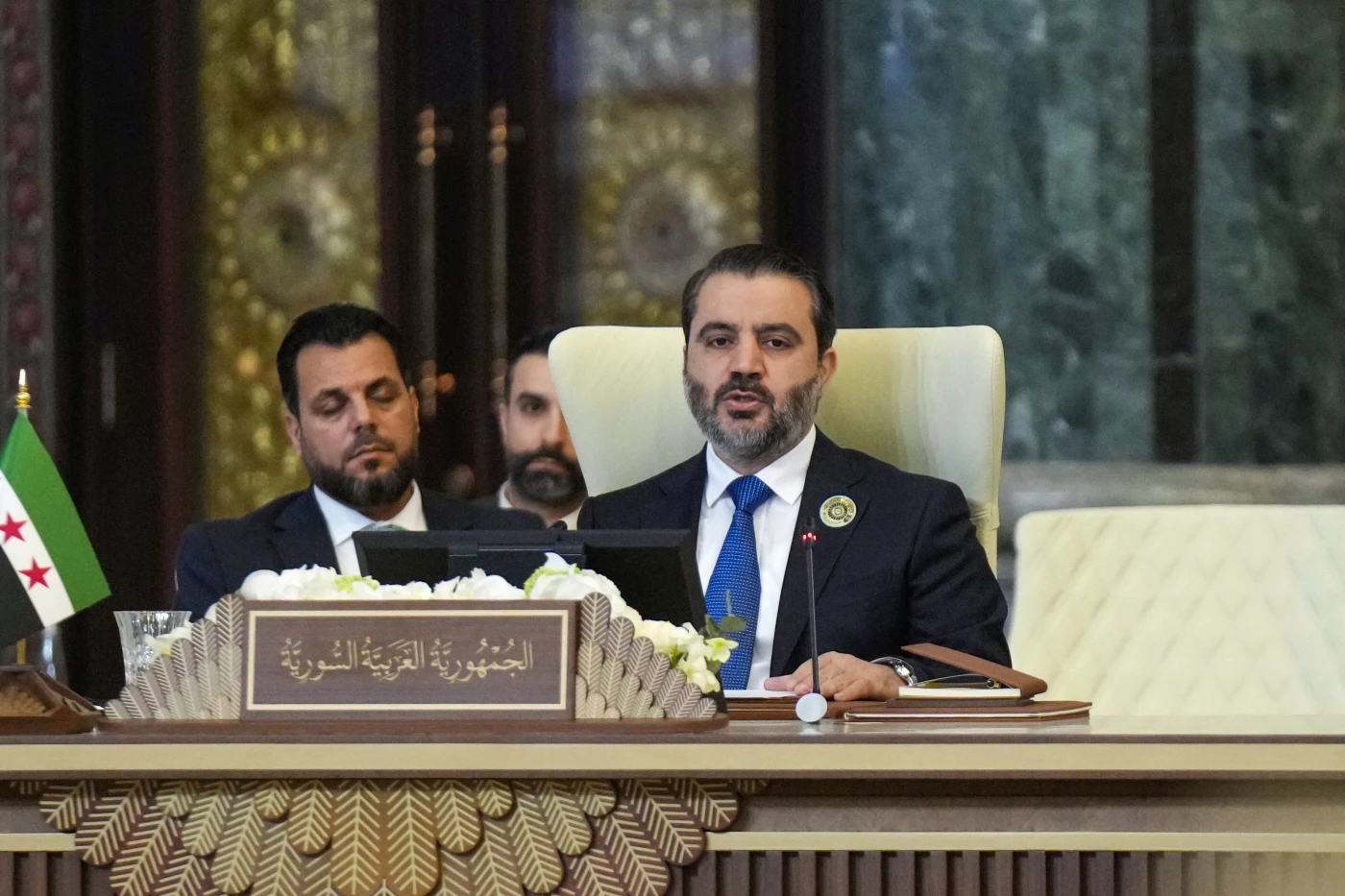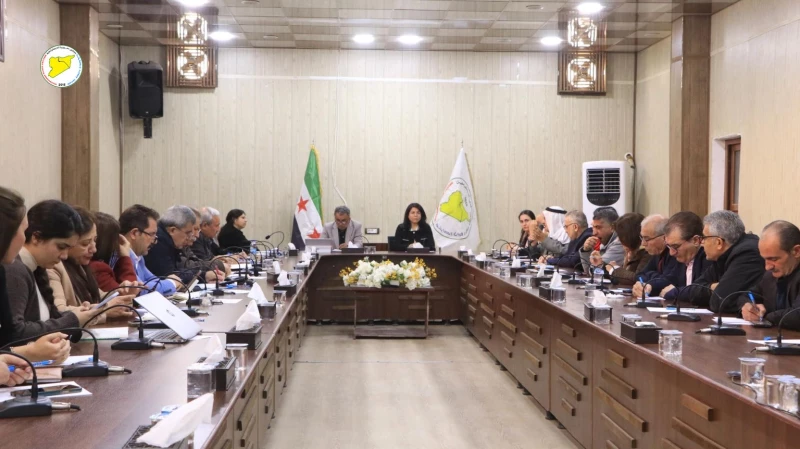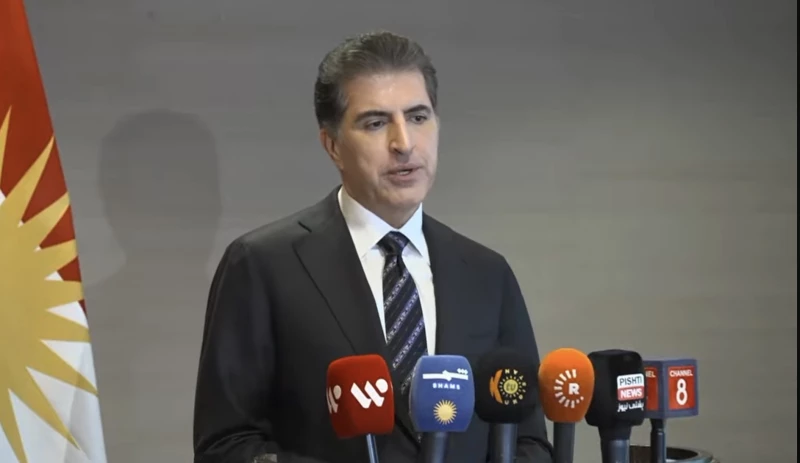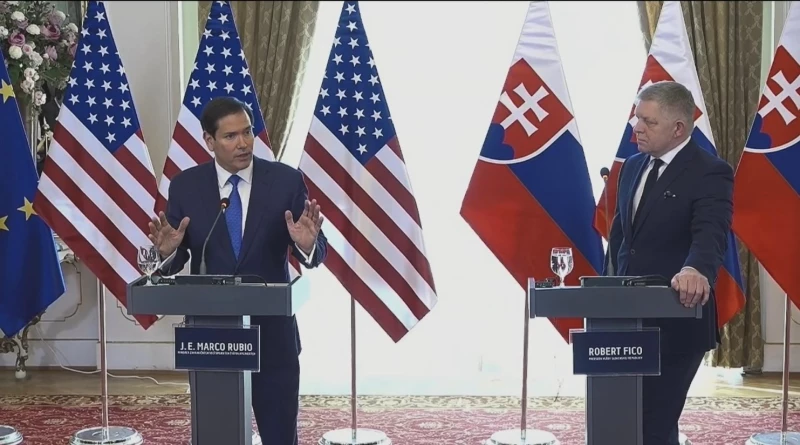ERBIL, Kurdistan Region of Iraq - Syrian Foreign Minister Asaad Hassan al-Shaibani praised the recent US decision to lift sanctions on Syria, calling it a “significant step” toward national recovery and regional reintegration, during remarks made Saturday at the 34th Arab League Summit in Baghdad.
In a wide-ranging address, Shaibani expressed gratitude to several Arab nations, including Saudi Arabia, Turkey, Qatar, the United Arab Emirates, and Jordan, for their diplomatic efforts and support during what he called “a historic moment” for Syria.
“This is not the end, but the beginning of a path we hope will be paved with real cooperation and joint Arab efforts for development, security, and stability,” he said.
Shaibani underscored Syria’s commitment to Arab unity, characterizing it as a strategic necessity, not a political luxury. He said the country was returning to the Arab fold with the goal of healing internal divisions and building an inclusive future.
“Syria, which has paid a high price resisting fragmentation and recovering from the past regime’s policies, returns to its Arab depth bearing the hopes of its people,” he said. “We seek a future that excludes no one and welcomes every sincere voice.”
The foreign minister said Syria had launched serious efforts toward national reconciliation, including a new inclusive dialogue, the formation of a representative government, and steps toward transitional justice.
“We are finalizing preparations for a new parliament representing all Syrians and a permanent constitution that enshrines rights, protects sovereignty, and establishes the rule of law,” he said.
"Serious steps have begun toward national recovery, stemming from a firm belief that Syria belongs to all Syrians, with no place for marginalization or exclusion," Shaibani continued, implicitly responding to repeated complaints by Syria’s myriad ethnic and religious minorities that the new administration seeks to sideline them.
Since the fall of the regime of Bashar al-Assad in December, numerous instances of violence have broken out against minorities in the country, including a campaign of "public executions" against the minority Alawites in the coastal regions of the west of the country, killing over 1,700 men, women, and children.
The capital of Damascus was wracked by sectarian violence against members of the Druze community earlier this month, with security forces being blamed in dozens of killings.
Syrian Kurds in late April held a unity conference that saw them demand a “decentralized” Syria that would grant a substantial degree of autonomy to the majority Kurdish northeastern segment of the country, with Damascus authorities subsequently rejecting federalism as a precursor to “a separatist reality on the ground.”
Continuing his speech, Shaibani reaffirmed Syria’s rejection of any foreign interference, calling it a violation of sovereignty. He also criticized attempts to divide the country or use remnants of extremist groups such as ISIS as tools of political pressure.
“Syria does not accept tutelage or to be an arena for others’ conflicts,” he said. “We seek balanced relations based on mutual respect and value every Arab effort that helped end our isolation.”
The minister condemned ongoing Israeli airstrikes in southern Syria, labeling them a breach of international law and a threat to regional stability. He urged Arab nations to support Syria’s right to reclaim full sovereignty over its territory.
Addressing regional unrest, Shaibani called for an end to internal Arab conflicts and highlighted the plight of Gaza, saying, "We hear the cry of wounded, besieged Gaza in our hearts,” he said. “It is time for our region to enjoy peace, for our peoples to live with dignity, and for our compass to return to its proper direction.”
Shaibani concluded by thanking Iraq for hosting the summit, praising its leadership and hospitality.



 Facebook
Facebook
 LinkedIn
LinkedIn
 Telegram
Telegram
 X
X


